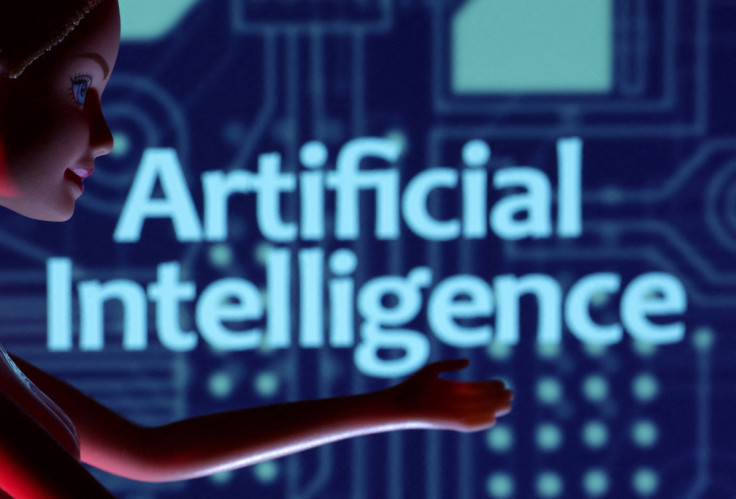Alphabet Market Value Gets $56B Boost After AI Announcements, Including ChatGPT Rival And Snapshot
KEY POINTS
- It unveiled PaLM 2, which is multilingual and can understand poems, riddles and idioms, at the I/O conference
- AI Snapshot, a tool that integrates generative AI to searches, also took the spotlight at the event
- Other products were also announced, including AI updates to Google Maps
Google parent Alphabet added billions to its market value after the tech giant announced several artificial intelligence products and tools during its I/O conference Wednesday.
Alphabet gained a whopping $56 billion in its market value after the stock surged as much as 5% following its announcements of a new ChatGPT rival and "AI Snapshot," Insider reported.
The outlet noted that Wednesday's Alphabet stock rally was a stark contrast to the scenario earlier this year when the stock plummeted by 9% after announcing Bard, its own large language AI model to rival Microsoft-backed ChatGPT.
Alphabet's new ChatGPT rival is called PaLM 2, which Google DeepMind Vice President Zoubin Ghahramani described in a statement as the company's next-generation "state-of-the-art language model with improved multilingual, reasoning and coding capabilities."
❗Introducing PaLM 2 by Google pic.twitter.com/ohV42EvzEP
— Smoke-away (@SmokeAwayyy) May 10, 2023
Ghahramani said PaLM 2 is "more heavily trained on multilingual text," as it has knowledge of more than 100 languages. The AI tool also has the ability to understand poems, riddles and idioms.
In comparison, Google's Bard has been called "worse than useless" and "cringeworthy" by some employees ahead of the chatbot's launch, Bloomberg previously reported. Workers on the generative AI model also reportedly said Bard was a "pathological liar."
However, it appears that Google was unfazed by the earlier comments of its employees, as the company also said during its I/O conference that it was expanding Bard to 180 countries.
Alphabet also unveiled "AI Snapshot," which integrates generative AI results into the search engine.
With our new generative AI experience in Search, you’ll get even more from a single search. You’ll be able to quickly make sense of information with an AI-powered snapshot, pointers to explore more and natural ways to ask. #GoogleIO pic.twitter.com/jgzz97DzEv
— Google (@Google) May 10, 2023
"With new generative AI capabilities in Search, we're now taking more of the work out of searching, so you'll be able to understand a topic faster, uncover new viewpoints and insights and get things done more easily," Elizabeth Reid, Google's vice president of Search, said in a statement.
The new Google search look with generative AI integration provides a summary of a search, links that provide more information about the search and a feature Google designers call "the bear claw," which splits AI Snapshot sentence by sentence with links that provide further information about the search.
"This is the new look of Google's search results page. It's AI-first, it's colorful and it's nothing like you're used to," The Verge's David Pierce wrote.
Other AI products announced during the conference included AI updates to Google Maps, an image search feature that will identify AI-generated photos and a new smartwatch operating system.
"With generative AI we are taking the next step. With a bold and responsible approach, we are reimagining all our core products, including search," Alphabet CEO Sundar Pichai said Wednesday.
Aside from a new response to Microsoft's AI work, Google also rebranded its AI tools for Docs and Gmail to Duet AI, which appears to be a challenge to Microsoft's Copilot.
Duet AI offers several generative AI tools that include automatic meeting summaries for Meet as well as photo generation capabilities for Slides, among others, according to The Verge.
Text-to-image generation for Slides and organization of complex projects on Sheets are features expected to roll out next month. Other features for Docs, Meet and Sheets are expected to arrive sometime in the coming months.
Meanwhile, Google's rival, Microsoft, has also been working on expanding its AI-enhanced features on its Bing search engine and the Edge internet browser. Earlier this month, the company announced the expansion of its AI-powered Image Creator in Bing to cater to all languages.
As tech companies pursue their own AI products, the U.S. government has also been raising concerns about the fast-rising technology.
Earlier this month, the Biden administration called in executives from Google, Microsoft, OpenAI and Anthropic — the four tech firms currently leading the way in AI products.
Senior government officials spoke with Pichai and the three other executives to discuss the possible risks of AI advancements and how to mitigate identified risks, according to a readout of the meeting published by the White House.
The officials emphasized the importance of tech leadership that models "responsible behavior" and takes action in ensuring "responsible innovation" as well as establishing the necessary safeguards to protect the American public's rights.

© Copyright IBTimes 2025. All rights reserved.






















